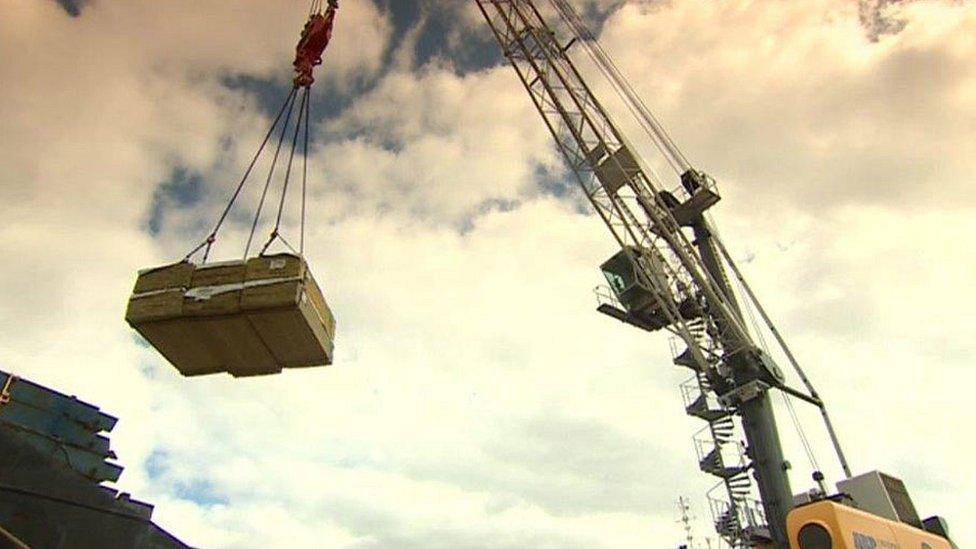M4 relief road could end up in courts, Labour AM says
- Published
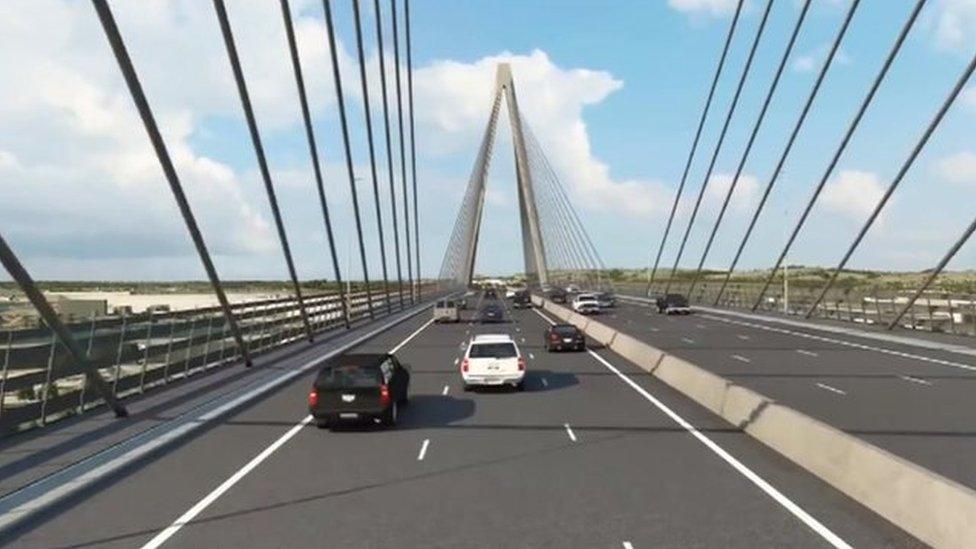
An artist's impression of the M4 relief road - a new stretch of motorway around the south of Newport
The final decision on the M4 relief road could be open to a legal challenge, a Labour AM has said.
Lee Waters said an intervention by Future Generations Commissioner Sophie Howe was "very significant".
Ms Howe said the Welsh Government was misinterpreting its own legislation and she was "not ruling out" her own review but would wait for the ongoing public inquiry to end.
The government said it could not comment on the specifics.
"Following the inspector's recommendation a decision can be made on whether to proceed with construction of the M4 Project," a spokesman added.
The public inquiry began in February and is expected to finish at the end of the year.
The Labour-led Welsh Government, which has argued that a new road is justified and vital, is not bound by the inquiry's final decision.
A number of routes have been proposed but First Minister Carwyn Jones' favoured option is the so-called "black route", claiming after last year's assembly election "there doesn't seem to be an alternative."
Lee Waters claims the relief road will not cut congestion as more people will make car journeys
The proposed £1.1bn route includes 15 miles of new motorway and a 1.5 mile bridge across the River Usk, as well as major remodelling of junctions 23 and 29 of the M4.
Mr Waters told the BBC's Sunday Politics Wales programme he believes "it's quite clear the government have made their mind up on this and they're doing what they've always done".
An opponent of a new road, Mr Waters added: "They are wedded to what's called a predict and provide approach to transport. The forecasts show that traffic's going to go up so they're building capacity to meet that future demand.
"That approach has been tried for 50 years and we know the result of it - traffic keeps going up and we spend more and more money on roads.
"This is a colossal amount of money at a time when our budgets are going down every year," he said, adding it would increase emissions and harm the environment.
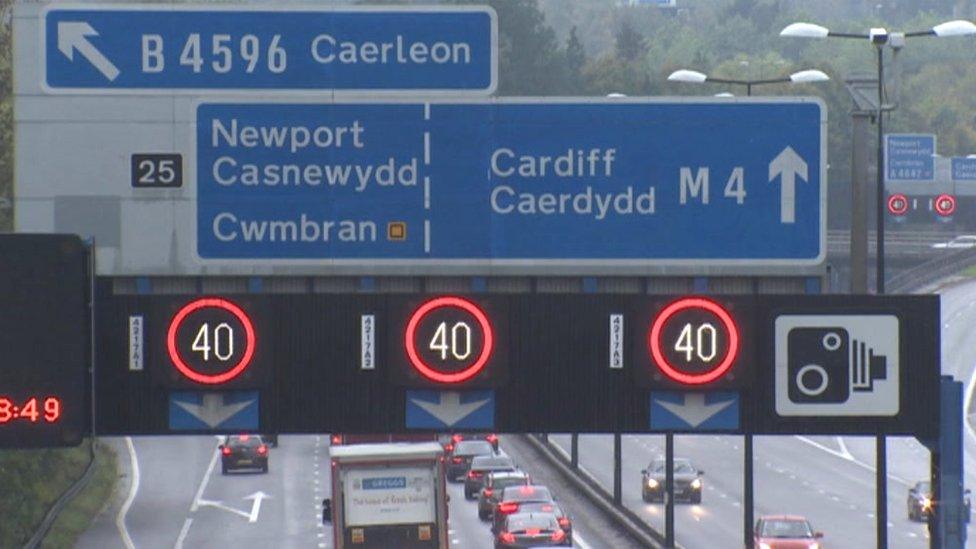
Mr Waters believes "if there was a free vote across all the parties, the 'black route' would not get support but I doubt very much whether we're going to get to test that theory".
Welsh Labour ministers are not obliged to put the final decision to a specific vote in the assembly, with government sources arguing a commitment to deliver a "relief road for the M4" was included in the party's assembly manifesto.
But the decision would need to be agreed as part of any future budget.
Mr Waters also pointed to Ms Howe's claim that ministers could be setting a "dangerous precedent" in the way they have interpreted the Future Generations Act, which requires public bodies to take into account the economic, social, environmental and cultural impact of any policy decision.
"For the government's own commissioner to say to the planning inspector that in her view this goes against the act the government passed, they've interpreted their own law incorrectly, opening the government up to a judicial review.
"Who knows where that will end up? So, I don't think this is the end of the story," he added.
A new road is supported by CBI Wales, the South Wales Chamber of Commerce and the Welsh Conservatives.
Andrew RT Davies, the Welsh Tory leader, said a decision was needed to bring "an end to the traffic misery that blight's this part of Wales".
Plaid Cymru and UKIP backed a cheaper alternative known as the "blue route" in the assembly election but UKIP has since said it could back the "black route".
- Published19 September 2017
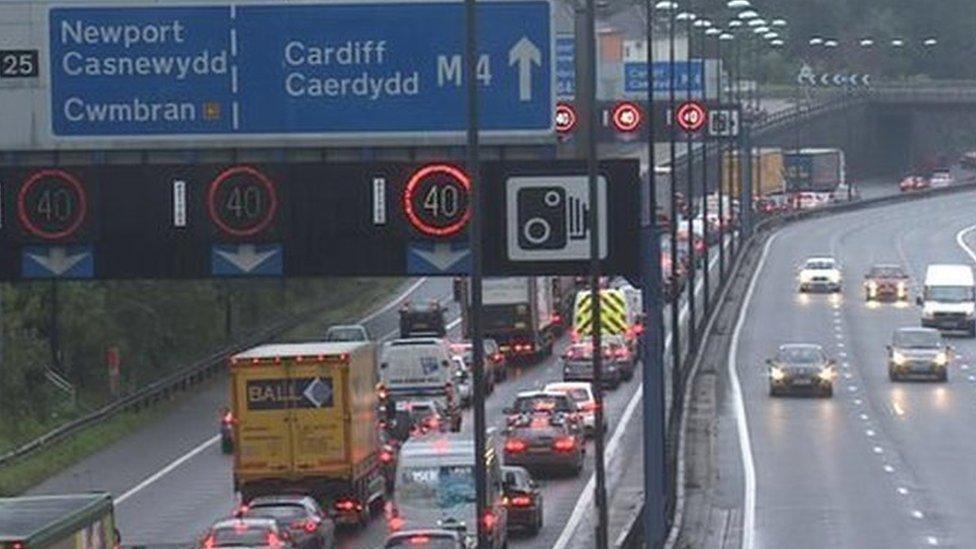
- Published5 April 2017
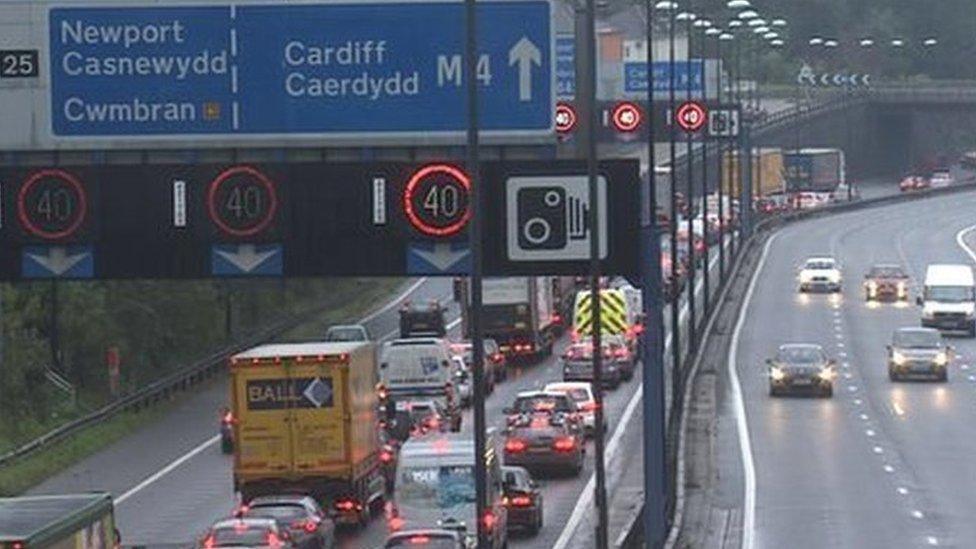
- Published29 March 2017
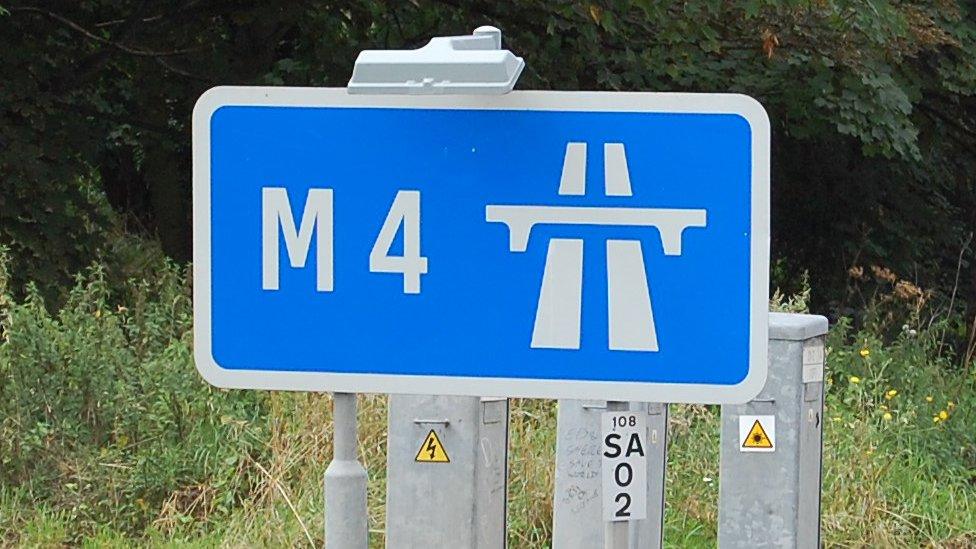
- Published11 May 2016

- Published28 April 2016
